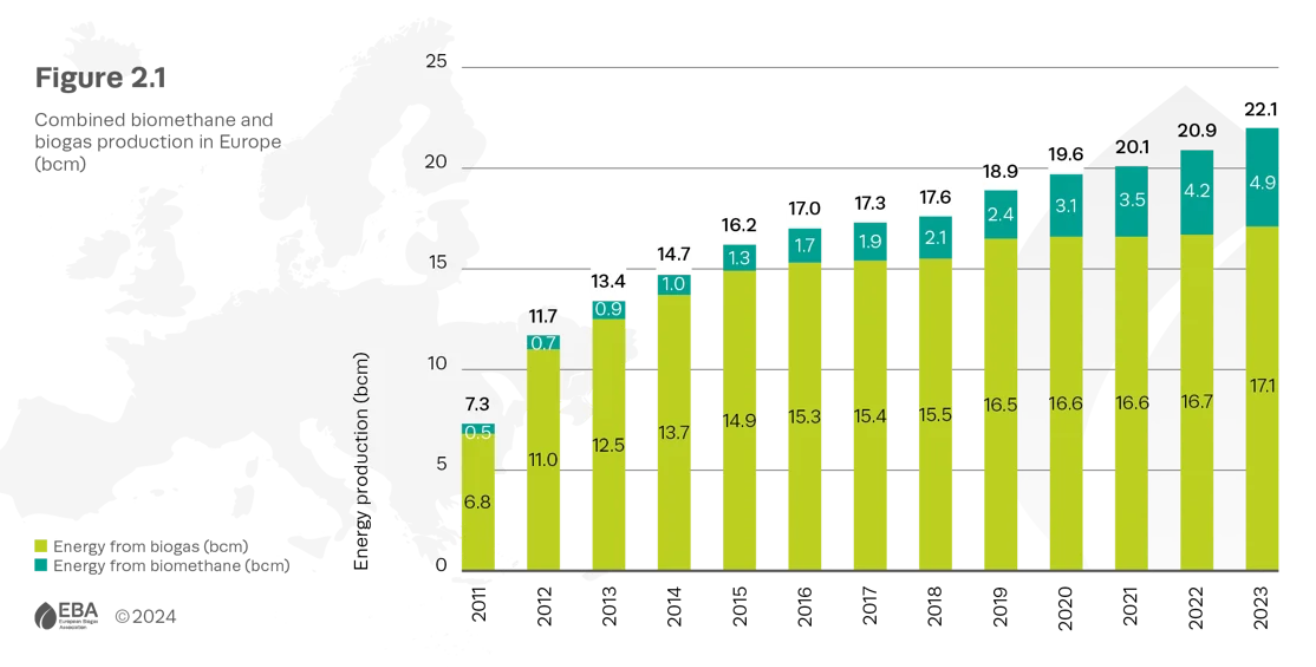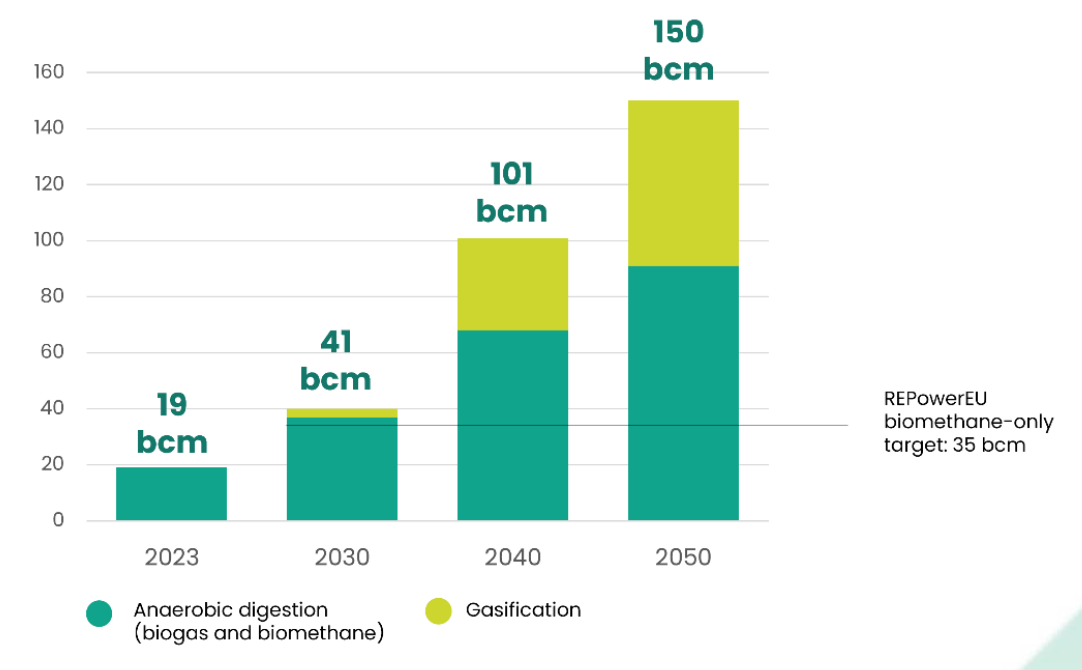As the European Union charts its path toward the 2040 Climate Targets, the European Biogas Association (EBA) has unveiled its strategic vision for biogases as a cornerstone of a sustainable, circular, and resilient energy system
Thus, in its new roadmap, the EBA urges the European Commission to adopt a binding target of 100 billion cubic meters (bcm) of biogases by 2040, recognising its vital role in delivering energy security, emissions reductions, and economic development.
To reach this goal, EBA proposes the establishment of a European Biogases Charter by 2025. To reinforce the Charter, EBA calls on Member States to publish National Pledges for Biogases, as public commitments that will help drive implementation and enable progress monitoring in years ahead.
The importance of the sector
Biogas and biomethane are environmentally vital and economically viable, offering flexible energy generation that enhances grid stability and supports renewables integration. Importantly, replacing natural gas with biomethane leverages existing infrastructure, minimizing investment needs.
Biogas and biomethane strengthen regional economies, create local jobs ensuring that economic investment revolves within Europe, and reduce dependence on foreign energy, fertilisers, and CO₂ supplies, boosting Europe’s long-term security and competitiveness.

Source: EBA.
The biogases sector in Europe has experienced impressive growth over the past years, with a consistent 20% year-on-year increase in the last years. Currently, biogases provide 22 bcm of renewable gas to the European market, equal to 7% of EU natural gas consumption in 2023.
Therefore, EBA strongly advocates for a 100 bcm combined biogas and biomethane target for 2040 to be formally anchored in EU legislation. This figure is based on well-founded estimates of sustainable feedstock availability and would represent a transformative step for Europe’s green energy landscape

Source: EBA.
Setting a binding target would align with the REPowerEU Plan’s goals (35 billion m3 of biomethane in the EU in 2030) and give investors, developers, and communities the long-term certainty they need.
Other advantages
The production of 100 bcm of biomethane would generate more than 480 Mt of CO₂ emissions savings, a substantial contribution to the achievement of the EU’s emissions reduction goal for 2040. Furthermore, the biogenic CO₂ captured through the biogas process could replace 89 million tons of fossil-derived CO₂ by 2040 in numerous critical industries, while digestate production and use as organic fertiliser would generate additional GHG emissions savings.
Moreover, expanding the production of biogases to meet this target would generate thousands of new jobs across the EU. Due to the decentralised nature of biogas facilities, these benefits would be felt most strongly in rural and local communities, boosting regional economies, fostering energy independence, and empowering citizens across Member States.
Obligations of the European Biogas Charter
This European Biogases Charter should include Member States’ commitment to:
- National Pledges for Biogases: which illustrating specific action plans for sustainable biogases deployment, so to substantiate Member States’ ambition to use these renewable gases as a cornerstone of a sustainable, circular, and energy-secure Europe.
- Accelerate biogases deployment: Streamline permitting procedures for biogases projects by implementing digitalisation, best practices, and coordinated administrative processes across Member States to reduce delays and uncertainty.
- Enhance market design: Improve support schemes and market incentives to ensure long-term investment visibility, and the integration of environmental and circular economy benefits provided by biogases.
- Boost infrastructure and production capacity: Facilitate investments to scale-up domestic production capacity of biogases, including grid connections, upgrading technologies, and storage infrastructure, ensuring alignment with national energy and waste management strategies.
- Promote circular economy contributions: Acknowledge and strengthen the role of biogases in providing renewable energy, organic fertilisers, and biogenic CO₂, helping to decarbonise hard-toabate sectors, restore soil health, and reduce dependence on fossil-derived CO₂.
- Strengthen strategic cooperation: Commit to regular dialogue and coordination with the European Commission and the biogases sectors to align efforts, monitor progress, and ensure effective implementation of this Charter.
Download the new roadmap from EBA
EBA fully believes in the future potential of renewable gas in Europe. Founded in 2009, the association is committed to the deployment of sustainable biogas and biomethane production and use throughout the continent. EBA counts today on a well-established network of over 300 national associations and other organisations covering the whole biogas and biomethane value chain across Europe and beyond.
This material for SAF Ukraine was prepared by Yurii Matveev, member of the Expert Council of the Bioenergy Association of Ukraine. As a full member of the EBA, the UABIO calls on Ukrainian stakeholders to join the creation of the future European Biogas and Biomethane Charter.